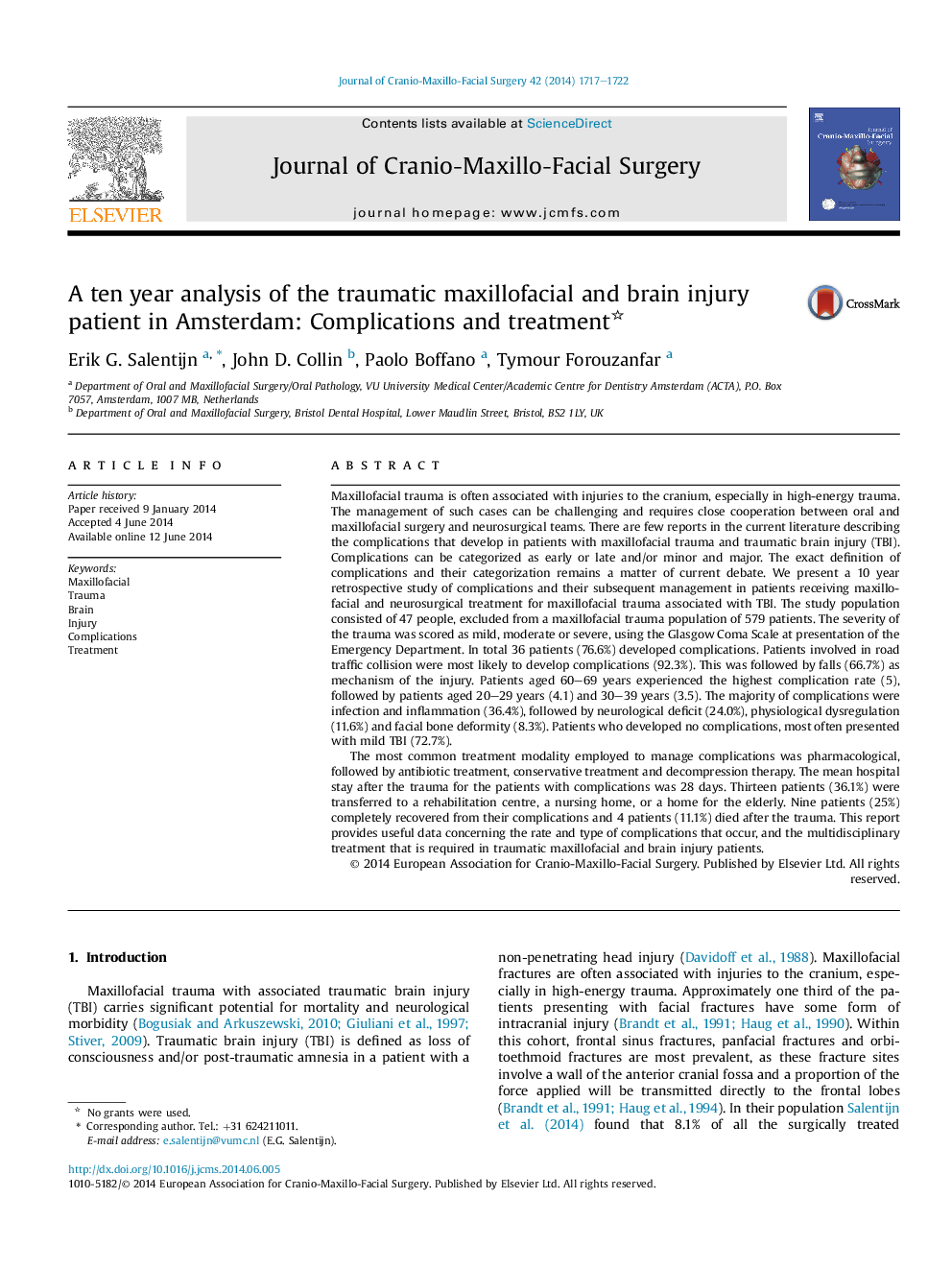| کد مقاله | کد نشریه | سال انتشار | مقاله انگلیسی | نسخه تمام متن |
|---|---|---|---|---|
| 3142734 | 1196792 | 2014 | 6 صفحه PDF | دانلود رایگان |
Maxillofacial trauma is often associated with injuries to the cranium, especially in high-energy trauma. The management of such cases can be challenging and requires close cooperation between oral and maxillofacial surgery and neurosurgical teams. There are few reports in the current literature describing the complications that develop in patients with maxillofacial trauma and traumatic brain injury (TBI). Complications can be categorized as early or late and/or minor and major. The exact definition of complications and their categorization remains a matter of current debate. We present a 10 year retrospective study of complications and their subsequent management in patients receiving maxillofacial and neurosurgical treatment for maxillofacial trauma associated with TBI. The study population consisted of 47 people, excluded from a maxillofacial trauma population of 579 patients. The severity of the trauma was scored as mild, moderate or severe, using the Glasgow Coma Scale at presentation of the Emergency Department. In total 36 patients (76.6%) developed complications. Patients involved in road traffic collision were most likely to develop complications (92.3%). This was followed by falls (66.7%) as mechanism of the injury. Patients aged 60–69 years experienced the highest complication rate (5), followed by patients aged 20–29 years (4.1) and 30–39 years (3.5). The majority of complications were infection and inflammation (36.4%), followed by neurological deficit (24.0%), physiological dysregulation (11.6%) and facial bone deformity (8.3%). Patients who developed no complications, most often presented with mild TBI (72.7%).The most common treatment modality employed to manage complications was pharmacological, followed by antibiotic treatment, conservative treatment and decompression therapy. The mean hospital stay after the trauma for the patients with complications was 28 days. Thirteen patients (36.1%) were transferred to a rehabilitation centre, a nursing home, or a home for the elderly. Nine patients (25%) completely recovered from their complications and 4 patients (11.1%) died after the trauma. This report provides useful data concerning the rate and type of complications that occur, and the multidisciplinary treatment that is required in traumatic maxillofacial and brain injury patients.
Journal: Journal of Cranio-Maxillofacial Surgery - Volume 42, Issue 8, December 2014, Pages 1717–1722
